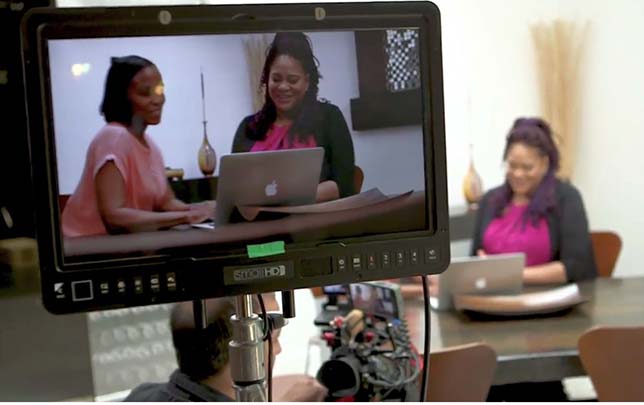A Strayer Is Born: Cinematic-Caliber Videos Boost Outcomes at Online School
- By Dian Schaffhauser
- 11/07/17

Taking a lesson from Hollywood, an institution dedicated to adult learners has brought in Emmy-winning filmmakers, producers, editors and cinematographers and put them to work creating story-oriented videos their students will see in class. Strayer University, a private, online, for-profit institution in Virginia, launched "Strayer Studios" as a pilot project to see what impact quality content would have on student success. The latest results: Cinematic-caliber coverage of course content improved class attendance, completion of assignments and participation in class discussion.
The secret weapon is called "Strayer Stories," a set of documentaries profiling people in the field undertaking compelling work. For example, in one documentary for a sociology class, Ron Finley, the "Gangsta Gardener," shares how he brings gardening into struggling neighborhoods to help residents grow their own food and eat healthier. In other example, actress and author Kim Coles teaches students in an English class about introspection and autobiographical writing. Jennifer Gefsky, head of online female-focused recruiting firm Après, shares her start-up story with students in an introduction to information systems course.
After students watch a given documentary, additional videos help connect the film to the curriculum and to reinforce facts and lessons that will help students gain context for tying the stories to the content they're learning.
The filmmakers work with a team of in-house course designers and faculty. So far, 30 courses have been restructured in the new style. The university estimated that 52,000 classes will have been delivered in the "studios" format by the end of the year; that's expected to double by spring 2018.
In a new report just released by the institution, Strayer reported that about 85 percent of students watched the documentary videos from beginning to end. It saw a 6 percent increase in submitted work, such as discussion forum responses and quizzes, in those classes. Compared to students who were engaged in traditional coursework, those in the pilots were 5.5 percent more likely to persist to the next quarter. Overall, one in 10 fewer students dropped courses that included the new form of video content. And the students assessed the courses at 88 percent or higher on average in three areas: providing real-world examples, being intellectually challenging and being effective overall.
"The challenge was, how do we grab a student's attention? We thought a lot about binge-viewing and not being able to wait for the next episode of a show. Why can't we do that with academic content?" said Brian Jones, president of Strayer, in a prepared statement. "This new approach to online learning is receiving positive initial feedback, which has important implications about how the Strayer Studios approach can improve student outcomes long-term."
A report describing the pilot project is available on the Strayer website.
About the Author
Dian Schaffhauser is a former senior contributing editor for 1105 Media's education publications THE Journal, Campus Technology and Spaces4Learning.